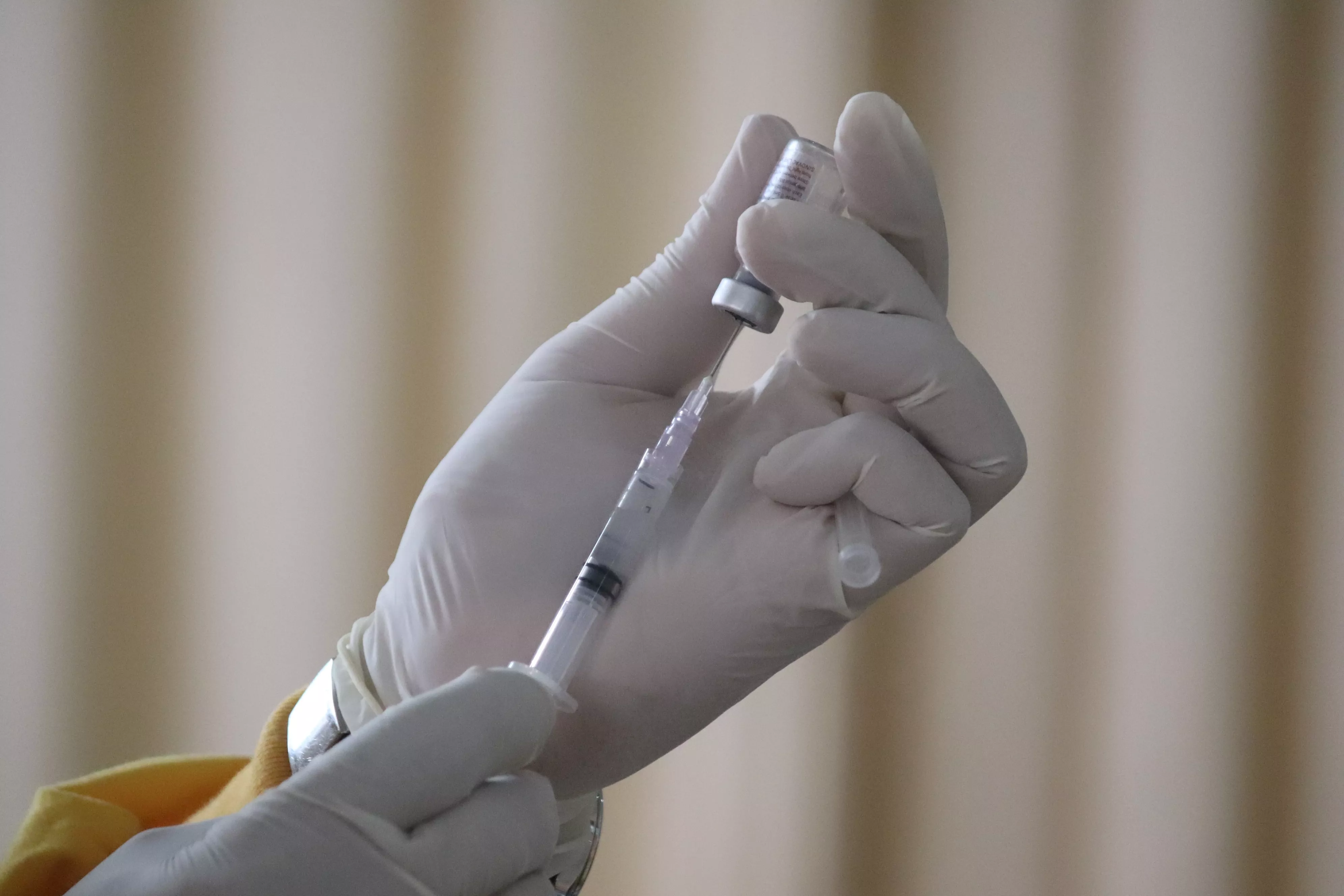
Learn more about the different types of coronavirus vaccines approved for use in the UK by the Medicines and Healthcare Products Regulatory Agency (MHRA).
Types of coronavirus vaccines
We know about five coronavirus vaccines so far, with three of these being used in the UK now.
Find out more about who can get the vaccine.
Pfizer/BioNTech vaccine
The first of these was developed by Pfizer/BioNTech. The results from their clinical trial showed the vaccine to be 95% effective at protecting people against developing symptomatic COVID-19 after two doses, and suggested that in the period between doses it was 52% effective. This vaccine was approved for use in the UK by the Medicines and Healthcare Products Regulatory Agency (MHRA).
The MHRA is responsible for making sure all medicines and medical devices used in the UK work and are safe, and have to approve any new vaccines before they can be given to members of the public in the UK.
More recently, we’ve seen results on the vaccine’s effectiveness against the Delta variant. A study from Public Health England (PHE) of real-world data showed the Pfizer-BioNTech vaccine is 96% effective against hospitalisation with the Delta variant after two doses.
However, one dose is less effective at preventing symptomatic illness from the Delta variant compared to other variants. This tells us just how crucial it is to get your second jab.
Oxford/AstraZenca vaccine
The MHRA have approved the Oxford/AstraZeneca vaccine for use in the UK. Results from the original clinical trial show it’s on average 70% effective against symptomatic illness.
A later study looking at effectiveness against the Delta variant, showed the Oxford/AstraZeneca vaccine is 92% effective against hospitalisation after two doses. The study also showed that the second dose is really important to boost protection against the delta variant.
If you’re under 40 years old
On 07 April 2021, the UK government’s drug regulator announced that the Oxford/AstraZeneca vaccine is no longer recommended for people under 40. First doses of the vaccine now won’t be offered to people in this age group. This is the case for all UK nations.
This is a precaution as scientists learn more about the link between the Oxford/AstraZeneca vaccine and reports of blood clots in a very small number of people after having their first dose of this vaccine. This risk seems, at the moment, to be higher for younger people.
It’s important to know that the benefits of the Oxford/AstraZeneca vaccines outweigh the risks of a potential blood clot in some people, including for people with diabetes. Only around 4 doses of the vaccine in each million doses given out have been linked to blood clots.
If you’ve had your first dose of the Oxford/AstraZeneca vaccine, and haven’t had any significant side effects, you should still take your second dose when it’s offered. This is true whether you’re under or over 30. If you’re worried about the vaccine or have had blood clots in the past, speak to your GP for more advice.
And remember, our helpline team are here to talk things through. Give us a call on 0345 123 2399 to speak to one of our highly trained advisors about any concerns.
Spikevax (Moderna vaccine)
The most recent vaccine to be approved for use in the UK has been produced by Moderna. In their clinical trial, Spikevax was 94% effective at stopping people develop symptomatic illness. The government ordered 17 million doses and the UK roll out began in April 2021.
The MHRA have also produced a Patient Information Leaflet for patients taking Spikevax.
Novavax vaccine
We’ve also heard results from a clinical trial of the Novavax vaccine showing it’s 89% effective at preventing COVID-19. The MHRA will now look at all the data and decide whether to approve it for use in the UK.
The UK government have pre-ordered 60 million doses of the Novavax vaccine and and we expect further announcements in 2022.
Janssen vaccine
Janssen have announced results from their clinical trial that looked at giving just one dose of their vaccine. They showed a single dose was 66% effective at stopping symptomatic illness.
The MHRA approved the Janssen vaccine in May. The UK government has already ordered 20 million doses of the vaccine which were to be available early in 2022. However, the UK government have announced that all doses will be donated to the Covax programme, which is delivering vaccines to developing countries.
The government has also ordered vaccines from two other companies, who haven’t shared results from their trials yet. We will continue to update this page when we know more.
Third-dose coronavirus vaccines
A third dose of the vaccine is being offered to specific groups who were severely immunosuppressed at the time of their first or second dose of the coronavirus vaccine. It is an extra 'top-up' dose for people who may not have generated a full immune response to the first two doses. The third dose should usually be at least 8 weeks after the second dose. If you are eligible, your healthcare team will decide on the timing of the third dose that is right for you and contact you to arrange an appointment.
The first group of people to be offered a third dose coronavirus booster vaccine could be:
- adults aged 16 years and over who are immunosuppressed
- those living in residential care homes for older adults
- all adults aged 70 years or over
- adults aged 16 years and over who are considered clinically extremely vulnerable
- frontline health and social care workers.
Our helpline
If you have any questions about coronavirus vaccines, as well as your GP or diabetes team, you can also always contact our helpline team on 0345 123 2399. Our trained advisors are there to support you.
